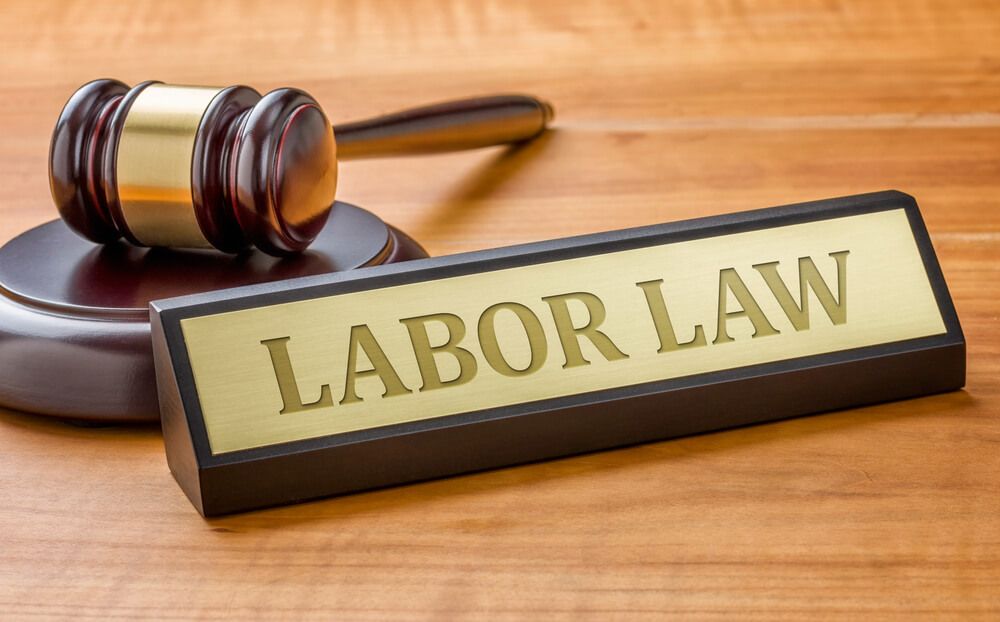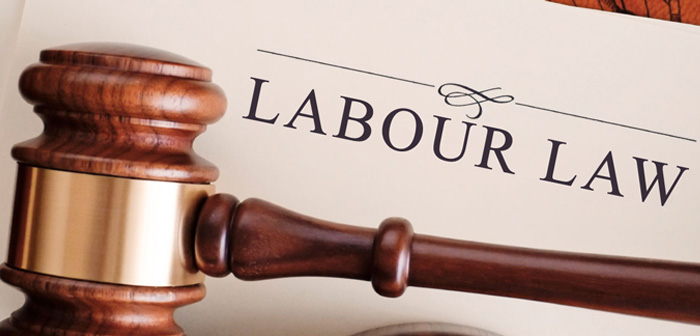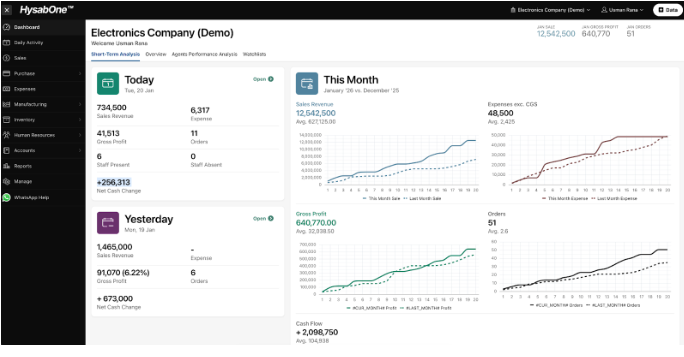Labour Law in Pakistan
Historical Background of Labour Law
In the early 17th century, the United Kingdom established its presence in South Asia. During the 1850s, the British expanded their influence and controlled most of the Indian subcontinent, including Pakistan and Bangladesh today. The British government took over the country’s administration in 1857. Under British Rule, different administrative reforms were made in different disciplines. Labour sector also underwent various revolutionary reforms, out of which the establishment of Labour Courts was a landmark one.
Special Courts for Trial of Offences and Tribunals were established for specific types of cases, to resolve labour disputes of various types.Usually, most of the appeals from various Courts are handled by the High Courts, however, labour courts follow different mechanisms to handle appeals. Here exist different appellate tribunals in different provinces, to handle appeals from the lower ranked labour courts.

Labour Rights ensured in the Constitution of The Islamic Republic of Pakistan:
In Part II of the Constitution of Pakistan, entitled Fundamental Rights and Principles of Policy, there are several provisions relating to labour rights. For instance:
- All forms of slavery, forced labor, and child labor are prohibited by Article 11 of the Constitution;
- In article 17, the right to form unions and to associate freely is guaranteed;
- The right of its citizens to engage in lawful professions or occupations or to conduct lawful businesses is ensured by Article 18;
- Under Article 25 of the Constitution, people have the right to equality before the law and are prohibited from discriminating on the basis of their sex.
- The provision of Article 37(e) ensures just and humane working conditions, as well as maternity benefits for women in employment, and ensures that children are not employed in unsuitable jobs.
Hence, it can be concluded that the constitution and law of Pakistan protect the rights of workers/labour to carry out their job/ business activities in a comfortable environment without any discrimination or coercion.
Labour Legislation & Labour Courts in Pakistan

The labour laws of Pakistan inherited their origins from India when the Indo-Pak subcontinent was partitioned. Through a continuous process of trial and error, laws have evolved to meet the socio-economic conditions, the state of industrial development, the expansion of the labour force, the growth of trade unions, the level of literacy, and the Government’s commitment to social welfare and development.
As part of its efforts to achieve the above objectives, the successive governments of Islamic Republic of Pakistan have introduced a number of labour policies since independence to safeguard the rights of the labour.
According to the Constitution, labour is considered a concurrent subject, which means both the federal and provincial governments are responsible for it. Nevertheless, in order to maintain uniformity, the Federal Government enacts laws allowing the Provincial Governments to adopt rules and regulations based on the conditions prevailing in their territories or their specific needs.
.
Contract of Employment– Employer Employee Relationship:
Article 18 of the Constitution guarantees every citizen the right to enter into any lawful profession or occupation, and to conduct any lawful trade or business. Furthermore, to deal with the mutual relationship between the employer & the employee, the Commercial Employment Ordinance/Standing Orders Ordinance was enacted in 1968. Employment security is provided by the Ordinance for all industrial and commercial establishments throughout the country that employ 20 or more workers. Generally, the labour contracts of workers in other establishments, domestic servants, farm workers or casual labour employed by contractors are unwritten, and can be enforced through the courts based on oral evidence.
Each employer in an industrial or commercial establishment must issue an appointment letter to each employee when he or she hires them. Each labour contract must contain the main terms and conditions of employment, including the nature and tenure of the appointment, the pay allowances and other fringe benefits available to the employee, and the terms and conditions of employment.
Termination of the Job Contract of an Employee
Permanent workers cannot be terminated for any reason other than misconduct without giving one month’s notice or wages in lieu thereof, either by the employer or by the worker, if the worker chose to leave. A month’s wage is calculated by averaging the wages attained in the previous three months. The right to notice or pay in lieu of notice does not apply to other categories of workers except permanent ones.
Any termination of service must be documented in writing stating the reasons for the termination. An aggrieved worker may bring a complaint under section 46 of the Industrial Relations Ordinance 2002, which regulates labour-management relations in the country, if he or she is aggrieved by an order of termination. Within three months of the occurrence of the cause of action, the employee must submit a written grievance to the employer.
Working Time and Rest Time For An Employ– As in Accordance with Labour Laws:
Various Labour Laws and Labour Acts determine the working and rest timings for a job holder person, keeping under consideration the nature and capacity of human beings . The timings are given as follows:
Working hours for Labour:
As per law, you should work no more than 48 hours a week, and your normal working hours per day should be 8-9 hours. The working hours should not exceed 9-10 hours a day by including lunch and prayer time.
Paid Leave for an Employee:
Under the Factories Act, 1934, every worker who has completed a period of twelve months continuous service in a factory is entitled to fourteen consecutive days of holidays after that period. In any such period of twelve months, if a worker does not take the whole number of holidays he or she is entitled to, any holidays not taken by him or her will be added to the number of holidays he or she is entitled to in the succeeding period.

Add Your HeadiMaternity Leave and Maternity Protection for Employees Granted by Labour Laws:ng Text Here
Although article 37 of the Constitution mentions maternity benefits for working women, there are two central enactments providing maternity benefits to women employed in certain occupations. In the Maternity Benefit Ordinance, 1958, a worker is entitled to six weeks of prenatal and postnatal leave after completing four months of employment or qualifying period. Unless a tribal area is included, the Ordinance applies to all industrial and commercial establishments employing women. The law also prohibits the dismissal of women while on maternity leave. Women employed in Pakistan’s mines are also covered by the Mines Maternity Benefit Act, 1941.
Other Leave Entitlements for Employees:
Additionally to the 14 days of annual leave with pay, workers are entitled to 10 days of casual leave with full pay and 16 days sick or medical leave on half pay under the Factories Act, 1934. In the event of an unexpected illness or any other urgent reason, casual leave is granted. A prior application should be made unless the urgency prevents it. In most cases, casual leave is approved. On the other hand, sick leave can be obtained on the basis of a medical certificate. If the request for leave is supported by a medical certificate, management should not deny it.
The Federal Government also declares festival holidays in addition to the leave entitlements. According to section 49 of the Factories Act, 1934, the Provincial Government lists all festival holidays, approximately 13, in the Official Gazette. As well, every worker is entitled to enjoy all such holidays with pay on all days declared and notified by the provincial government. However, if a worker is required to work on a festival holiday, an additional compensatory holiday with full pay shall be awarded along with a substitute holiday.
Employees who go on pilgrimage, i.e. Hajj, Umra, Ziarat, are entitled to special leave of up to 60 days under agreements with the Collective Bargaining Agent.
Minimum Age, and Protection Granted Under Labour Laws for Young Workers:
According to Pakistan’s Constitution, Article 11(3) expressly prohibits the employment of children younger than fourteen in factories, mines or other hazardous occupations. The Constitution also stipulates that the state of Pakistan is committed to protecting children, eradicating illiteracy, providing free and compulsory education within a short period of time, as well as ensuring just and humane working conditions for children and women, making sure they are not employed in vocations/places that are inappropriate for their age or gender.
A person who employs a child or permits a child to work in contravention of the Constitution is punishable by imprisonment for a term of up to one year or by fine up to Rs. 20,000 or both. A repeat of the offence is punishable by imprisonment for a term not less than six months or up to two years.
Equality before Law & Labour Acts:
State obligations under Article 38 of the Constitution include providing for the well-being of all people, regardless of sex, caste, creed, or race, by raising their standard of living, by preventing a few from accumulating wealth and resources to the detriment of the general interest, and by ensuring an equitable distribution of rights between employees and employers, and landlords and tenants. Within the country’s resources, every citizen is provided with the basic necessities of life, such as food, clothing, housing, education and medical relief, for all such citizens, irrespective again of their sex, caste, creed or race, as are permanently or temporarily unable to earn their livelihood on account of infirmity, sickness or unemployment.
Pay Issues & Labour Laws:
Different Labour laws and Labour acts protect the wage / pay rights of employees. Such labour laws and labour acts bind an employer to pay the wages of his employees in time.
Employers are responsible for paying all wages owed to employees. Any contractor who employs individuals in an industry must pay wages to those individuals. Wage periods should not exceed one month for those responsible for paying wages. If 1,000 or more people are employed, wages should be paid on a working day within ten days after the wage period ends. After being discharged, a person’s wages should be paid no later than the second working day.

Workers' Representation in the Enterprise
Until the adoption, on 29 October 2002, of the Industrial Relations Ordinance, 2002 (IRO 2002), repealing the Industrial Relations Ordinance, 1969 , Pakistan had a three-pronged system of participation in management (i.e., the Works Council, the Management Committee, and the Joint Management Board), each of which had its own sphere of activity and was independent from the other.
Now, the three previous bodies have been replaced by a single one: the Joint Works Council (Article 24 of the IRO 2002). Any establishment that employs fifty or more employees must have a Joint Works Council. A total of ten members, of whom 40% are workers’ representatives, make up the board. Formerly, the Management Committee and the Works Council included equal numbers of workers and employers, while the Joint Management Board included 30% workers. Management appoints the Convener of the Joint Works Council.
Trade Union and Employers Association Regulation
Freedom of association and Formation of Trade Unions:
Article 17 of the Pakistani Constitution guarantees that every citizen has the right to form associations or unions, subject to reasonable restrictions imposed by lawArticle 17 of the Pakistani Constitution guarantees that every citizen has the right to form associations or unions, subject to reasonable restrictions imposed by law. Furthermore, According to Article 3 of the IRO 2002, workers and employers alike have the right to form and join associations of their own choosing, subject to adherence to the law.
Registration of trade unions as per Labour Law:
The Industrial Relations Ordinance governs the registration of trade unions. Workers’ trade unions are registered with the Registrar Trade Unions in the province, and if the industry or establishment is nationwide with the National Industrial Relations Commission, after fulfilling a number of requirements outlined in Article 6 of the IRO 2002.
Advantages of trade unions’ Registration as per Labour Law:
The trade union obtains certain benefits through its registration: it obtains legal existence as a separate entity from its members. The membership of trade unions in Pakistan is usually based on the size of the industry/trade to which they belong. Upon establishment, trade unions and employers’ associations are free to define their constitutions and rules, elect their representatives freely, organise their activities, and formulate their programs.
Settlement of Individual Labour Disputes
A worker may bring his or her grievance to the employer in writing within one month of the day on which the cause of the grievance arises in regard to any right guaranteed or secured by or under any law or award or settlement, either directly or through the shop steward or Collective Bargaining Agent. A delay of three months is reduced to one month under the IRO 2002. Upon receiving a grievance from a worker, the employer must communicate his or her decision to the worker within fifteen days.
In the event that the employer fails to communicate a decision within the specified period, or if the worker is dissatisfied with such a decision, he or she may take the matter to the Labour Court within two months of the decision.
Labour Courts & Labour Laws:
Any CBA or employer may apply to the Labour Court for the enforcement of any right guaranteed or secured by law or any award or settlement under Section 33 of the Industrial Relations Ordinance, 2002. Section 44 of the Ordinance gives the Provincial Government the authority to establish as many Labour Courts as it deems necessary. Depending on its geographical parameters, its industry or the classes of cases it handles, each Labour Court has its own jurisdictional limitations. Provincial governments appoint one Presiding Officer to each Labour Court.
If a matter is referred to or brought before the Labour Court, it adjudicates it; inquires into or adjudicates any issue relating to the implementation or violation of a settlement referred to it by the Provincial Government; tries offences under the Industrial Relations Ordinance; and performs all other duties and powers assigned or conferred on it. In deliberating offences, the Labour Court follows the Code of Criminal Procedure, 1898 as closely as possible. For purposes of adjudicating and determining any industrial disputes, the Labour Court is deemed to be a Civil Court and retains the same powers as such a court under the Code of Civil Procedure, 1908 (Act V of 1908) including enforcement of attendance and examination under oath, production of documents and material objects, and issuance of commissions to examine witnesses.
Labour Court awards are issued in writing and delivered in open court, with two copies forwarded to the provincial government. Within one month of receiving the award or decision, the Provincial Government publishes it in the Official Gazette.

Labour Appellate Tribunals & Labour Laws
Registration of trade unions as per Labour Law:
The Industrial Relations Ordinance governs the registration of trade unions. Workers’ trade unions are registered with the Registrar Trade Unions in the province, and if the industry or establishment is nationwide with the National Industrial Relations Commission, after fulfilling a number of requirements outlined in Article 6 of the IRO 2002.
Advantages of trade unions’ Registration as per Labour Law:
The trade union obtains certain benefits through its registration: it obtains legal existence as a separate entity from its members. The membership of trade unions in Pakistan is usually based on the size of the industry/trade to which they belong. Upon establishment, trade unions and employers’ associations are free to define their constitutions and rules, elect their representatives freely, organise their activities, and formulate their programs.
Settlement of Individual Labour Disputes
A worker may bring his or her grievance to the employer in writing within one month of the day on which the cause of the grievance arises in regard to any right guaranteed or secured by or under any law or award or settlement, either directly or through the shop steward or Collective Bargaining Agent. A delay of three months is reduced to one month under the IRO 2002. Upon receiving a grievance from a worker, the employer must communicate his or her decision to the worker within fifteen days.
In the event that the employer fails to communicate a decision within the specified period, or if the worker is dissatisfied with such a decision, he or she may take the matter to the Labour Court within two months of the decision.
Labour Courts & Labour Laws:
Any CBA or employer may apply to the Labour Court for the enforcement of any right guaranteed or secured by law or any award or settlement under Section 33 of the Industrial Relations Ordinance, 2002. Section 44 of the Ordinance gives the Provincial Government the authority to establish as many Labour Courts as it deems necessary. Depending on its geographical parameters, its industry or the classes of cases it handles, each Labour Court has its own jurisdictional limitations. Provincial governments appoint one Presiding Officer to each Labour Court.
If a matter is referred to or brought before the Labour Court, it adjudicates it; inquires into or adjudicates any issue relating to the implementation or violation of a settlement referred to it by the Provincial Government; tries offenses under the Industrial Relations Ordinance; and performs all other duties and powers assigned or conferred on it. In deliberating offenses, the Labour Court follows the Code of Criminal Procedure, 1898 as closely as possible. For purposes of adjudicating and determining any industrial disputes, the Labour Court is deemed to be a Civil Court and retains the same powers as such a court under the Code of Civil Procedure, 1908 (Act V of 1908) including enforcement of attendance and examination under oath, production of documents and material objects, and issuance of commissions to examine witnesses.
Labour Court awards are issued in writing and delivered in open court, with two copies forwarded to the provincial government. Within one month of receiving the award or decision, the Provincial Government publishes it in the Official Gazette.
Labour Appellate Tribunals & Labour Laws:
Labor Appellate Tribunals were made by the IRO 2002. An aggrieved party can now appeal a Labour Court award, decision or sentence to the High Court (Article 48 of the IRO 2002). A Labour Court decision or award can be varied or modified by the High Court. If a Labour Court within its jurisdiction has passed an order in a case or proceeding within its jurisdiction, it may, on its own motion, request the record for that case or proceeding to satisfy itself as to its correctness, legality, or propriety, and may pass such order, as it thinks fit, with the provision that the order does not adversely affect any person without giving that person a reasonable opportunity to be heard.



